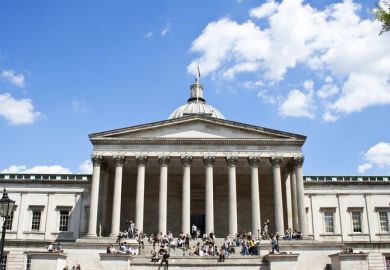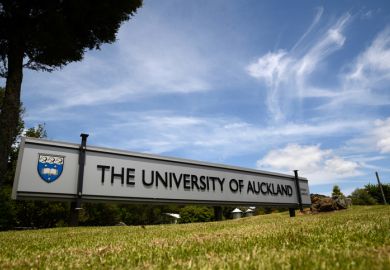One of the academics helping to advise the government on the coronavirus outbreak has spoken of the incredible pressures they are facing in working flat out to keep up to date with the rapidly changing situation.
John Edmunds, professor of infectious disease modelling at the London School of Hygiene and Tropical Medicine, also said that constantly “responding in emergency mode” made it “very hard” for researchers to share all their ongoing work with the scientific community.
There have been calls for more of the research being used by the government on the outbreak to be shared among the wider academic community before it is used to inform ministers’ decisions. Last week, the government did take the major step of publishing much of the evidence it had received through the Scientific Advisory Group for Emergencies (Sage) and its subcommittees.
However, Professor Edmunds pointed out that it was almost impossible to share work on the new coronavirus as soon as it was done because of the incredible speed at which researchers were working.
“We would like to spend longer on it so [journalists] can read it and the scientific community can read it properly, but it’s quite hard just to get that out when you’re having to just respond all the time in emergency mode,” he said.
“And our priority is the emergency mode – [if] the government asks us to do something by midnight, we have to do it.”
He added that the enormous pressure meant that any published work they did produce was inevitably very short and simply could not be up to the same standard as a fully fledged journal article.
“It’s not the kind of quality of evidence that I would normally release, but it is what we can do in 12 hours,” he added. “I am not saying it’s unchecked, but it doesn’t have the same kind of polish that we would normally like to give it. We understand that we have to respond straight away.”
There have been questions raised about whether the government had been, until relatively recently, relying too much on mathematical modelling of the epidemic and not looking closely at the real situation engulfing countries such as Italy.
But Professor Edmunds said government policy had to factor in considerations such as how long the public could maintain drastic interventions as well as the potential for the epidemic to flare up again after being suppressed for a time.
“This epidemic is going to go on for a very long time, not just a few weeks but a matter of months – probably the best part of this year. Ironically, the better we do [now], the longer it will take, so we have to keep people with us,” he said.
Meanwhile, a professor who has advised the government through Sage on flooding issues said that, based on her experience, the scientists involved in the coronavirus crisis would be doing the “best they can in very tough circumstances indeed”.
Hannah Cloke, professor of hydrology at the University of Reading, said: “Having been in the process, you trust that they are making the best decisions. You are taking all the information in rapidly, assessing it, coming up with the best advice.
“There are differences of opinion, but everyone is working together to get the best outcome. There are cases when you update your advice based on new evidence, but that is like anything you do in life.”
POSTSCRIPT:
Print headline: Operating in constant ‘emergency mode’ heaps pressure on researchers
Register to continue
Why register?
- Registration is free and only takes a moment
- Once registered, you can read 3 articles a month
- Sign up for our newsletter
Subscribe
Or subscribe for unlimited access to:
- Unlimited access to news, views, insights & reviews
- Digital editions
- Digital access to THE’s university and college rankings analysis
Already registered or a current subscriber? Login







